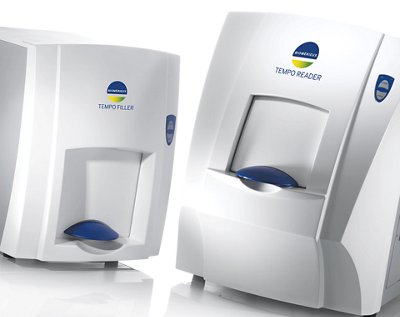Focus Expert with Erin Crowley
Chief Scientific Officer, Q Laboratories, Inc.
As Q Laboratories is about to achieve the largest expansion in its history, the company knows a thing or two about empowering analysts, supervisors and experts to cooperate in the most exciting project of all.
FOR THE BENEFIT OF ANYONE WHO WOULDN’T KNOW Q LABORATORIES, COULD YOU DESCRIBE THE WORK YOU DO?
Q Laboratories is a third-party contract lab. We have routine food microbiology, and pharmaceutical microbiology labs that are conducting the routine qualitative control testing for our clients. We also have analytical chemistry, food and pharmaceutical laboratory, and a research and development division of the analytical chemistry mostly working on validation of pharmaceutical products. Finally, the other lab that we have is the microbiological research and development lab.
YOUR PERSONAL JOURNEY AT Q LABORATORIES IS QUITE EXEMPLARY, ISN’T?
I started at Q Lab when I was 17 in 1995 as a Lab Tech when I was in university and worked all four years in the microbiology lab. I’ve always kept in touch with the previous owner and then came back in 2006 to open the Research and Development Lab after a couple years working in public health. At the end of 2016, I was promoted to Chief Scientific Officer here at Q Lab and so my role there expanded a bit, still focused on helping the projects launch and be successful here in the R&D Lab and help to expand the services that Q Laboratories offers because we are one month away to moving to a new building that is about four times the size of what we are now. Our strategy is grow Q Lab, maintain our core business but expand to other areas.
HOW WOULD YOU SAY THE CHANGES AFFECTING Q LAB AFFECT THE ANALYSTS AND EMPLOYEES OF THE COMPANY? ARE THEY EXCITED? ARE THEY SCARED? A LITTLE BIT OF BOTH?
All of the above, yeah ! The changes have been planned for years. We talked a lot about what lies ahead. We specifically focus on the need to adjust and to be flexible. Because we can only prepare our teams for only so far they start living and experience the actual changes. So that’s where we are right now. We’re very excited: we’ve been taking analysts through the new building and that really helps motivate them. They tell us « hey, you’re really doing what you said you’d do» and so this is really happening, you know. We joke internally and call it « The Q fever », saying « people are getting Q Fever . »
People know we’re here to support the work they’re doing. At the management level, we just can’t make these decisions in a bubble. So we spend a lot of time talking to everyone at every level in the company and listening to their feed-back which has been very important for them to really feel excited about our growth.
“'HEY, YOU'RE REALLY DOING WHAT YOU SAID YOU'D DO'”
WHAT TIPS WOULD YOU SHARE WITH ANYONE IN YOUR MANAGEMENT SITUATION, FACING THE SAME CHANGES TO HANDLE?
I really try to follow the mantra of our CEO, that is: « really communicate your strategies to all your employees ». Talk to the people close to the work and keep them informed about what is going on. We even use the phrase: « spend a disproportionate amount of time talking to you people » so everyone knows very clearly what their role is in the company and how it relates to strategy.
We also take the opportunity of the expansion to implement a profit sharing program for everyone in the company. So they know that if we’re doing well, then they have more money in their pocket. That’s going to help them be more efficient in the laboratory and hold everyone, including their peers, accountable for the work they do.
The other part of motivating our people is involving them in specific changes. For example, we’re looking at a new technology, say in this particular case we’ve just been looking at adding more testing to TEMPO®. We started with yeasts and mold. The analysts in the lab told us they loved how it was so much easier than the Plate Counts methods, Getting supervised feedback influences our decision; it’s a motivator for our people.
ISN’T IT REALLY TIME-CONSUMING?
Yes it is, but it is so much worth it. Everyone is just running around trying to achieve as much as possible, so that’s difficult. But what we have all really learnt to value here at Q Lab is letting the good people know how much we appreciate them. We spend time spending emails, or having quick meetings or taking them to lunch or having coffee or just sitting down and giving them the time. It’s not a magic formula other than that disproportionate amount of time. It is a lot of time but this has proven to be very successful for us.





